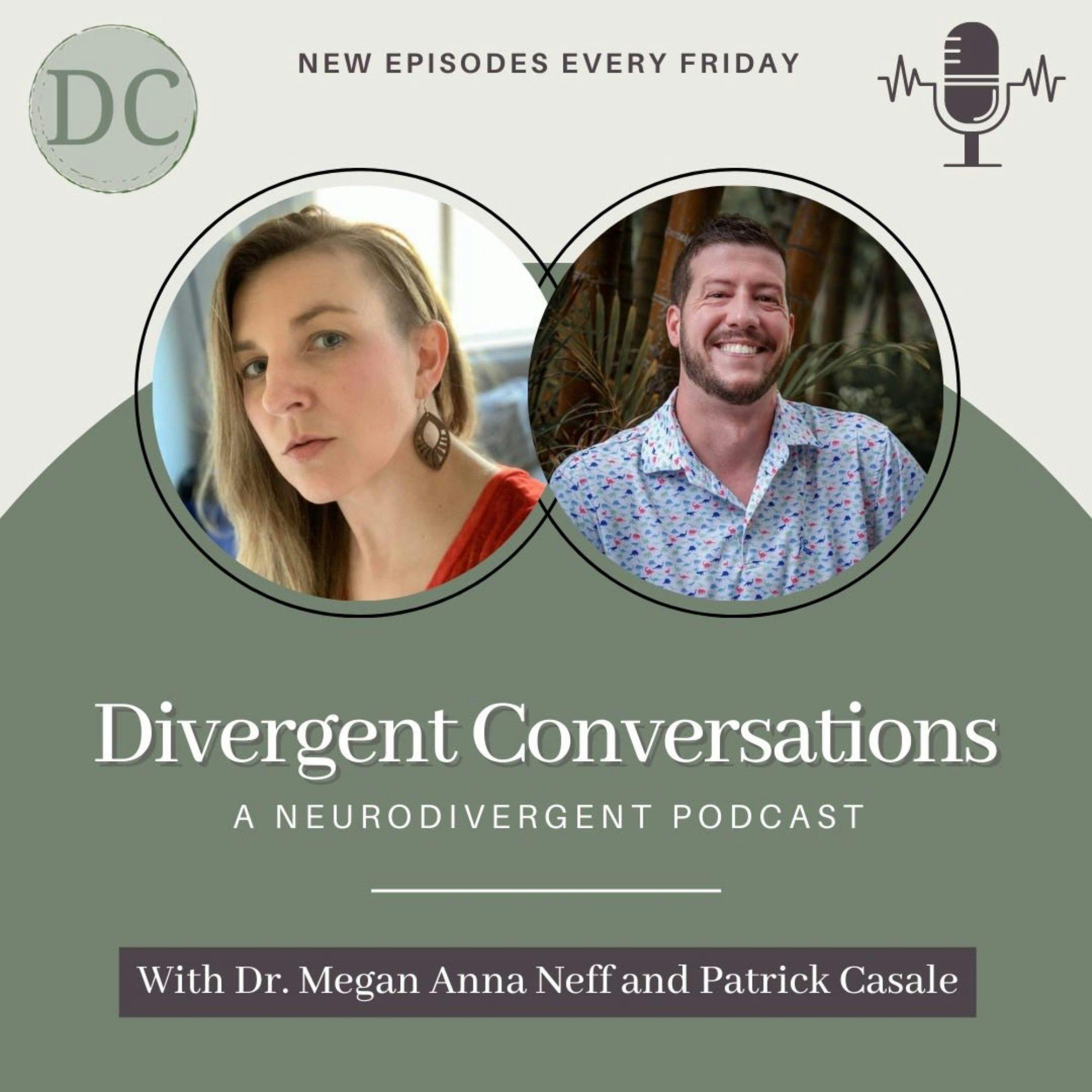Episode 10: Understanding Alexithymia — Exploring the Complexities of Emotion
Description
Picture the immense amount of energy invested in analyzing your emotional responses to every social interaction, striving to decipher not only your own feelings but also how the other person perceived the conversation. Or imagine navigating through life with a constant undercurrent of irritability and anxiety, yet lacking a clear understanding of their origin.
These experiences only represent a small fraction of what people with alexithymia may experience.
Alexithymia, which in simple terms is difficulty identifying and describing emotions, is a trait that is often associated with autism and ADHD, however despite the fact that one-in-ten people in the general population have this trait (not just Autistic people), there are still many misconceptions about what it is, who it really impacts, and how it shapes their experiences and relationships.
Dr. Megan Anna Neff, an AuDHD psychologist with alexithymia, states that a lot of things that have been attributed to autism, for example, difficulty with emotion recognition on faces or voice, are actually due to alexithymia, not autism.
In this episode of Divergent Conversations, Patrick Casale and Dr. Megan Anna Neff, talk with guest, Thomas Henley, an Autism consultant, public speaker, workplace trainer, and podcast host of “Thoughty Auti Podcast”, about all things alexithymia.
Top 3 reasons to listen to the entire episode:
Understand what alexithymia is, how is it related to autism and ADHD, and some common attributes associated with autism that are strongly linked to alexithymia.
Identify the ways that alexithymia affects emotional regulation and the ability to connect with others on a deep emotional level.
Learn what strategies and therapeutic approaches individuals with alexithymia can use to help facilitate emotional regulation and deeper connections with others.
Alexithymia affects many individuals in the general population, so taking the time to recognize and understand the traits, challenges, and experiences associated with alexithymia, can help facilitate deeper connections with others, self-acceptance, and healthy ways to manage overwhelming emotions and situations.
Alexithymia Resources
Alexithymia articles on neurodivergent insights: https://neurodivergentinsights.com/blog/category/Alexithymia
Alexithymia workbook: https://neurodivergentinsights.com/neurodivergentstore/p/alexithymia-workbook
Dr. Neff’s Alexithimia Training: https://learn.therasmarts.com/courses/Alexithymia
More about our guest, Thomas Henley:
My name is Thomas Henley, I’m an Autism consultant, public speaker and workplace trainer running the Worlds Top podcast ‘Thoughty Auti Podcast’, all about Autism & Mental Health - independently presented, edited and promoted by my Autistic self.
I’m also a Commonwealth/British champion in Taekwondo, Biomedical Sciences (Hons) graduate from UoM, Autistic Model, documentary creator of ‘Aspergers In Society’ & ambassador for Anna Kennedy OBE & Born Anxious.
I was diagnosed Autistic at 10 years old and later developed severe mental health conditions at the age of 14 due to trauma at Secondary School - Clinical Depression, GAD, Bulimia & multiple Dissociative disorders.
Most of my content focuses around the low quality-of-life statistics for autistic people, such as mental health, social isolation, unemployment, education, relationship difficulties & self-harm in all forms. I’ve delivered this information to the government, leaders in SEN education, and the general public through my outreach and social media work.
My passion is to help people, it’s my meaning to life, my saviour for helping me stay around. My ultimate goal is to improve things for future generations who may just experience the same awful things I have.
My content is informed from many angles. During my time at university, I also studied and researched into Autism, Mental Health, Sociology, Psychology, Socialising, Relationships & Philosophy. I also used to be Special
More Episodes
ADHD often brings unique challenges with impulsive behaviors which can make everyday interactions and tasks more complex. In an attempt to better understand the ways ADHD can present in daily life, this episode uses the DSM-5 diagnostic criteria as a framework for discussion—this is not an...
Published 06/14/24
Published 06/14/24
ADHD hyperactive traits are often misunderstood and the DSM-5’s portrayal of this type is heavily geared toward children and adolescents, which can make it harder to understand and address in adulthood. In an attempt to better understand the ways ADHD can present in daily life, this episode uses...
Published 06/07/24


